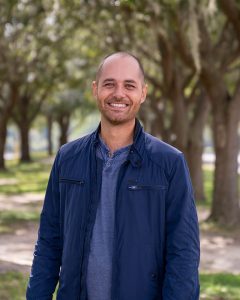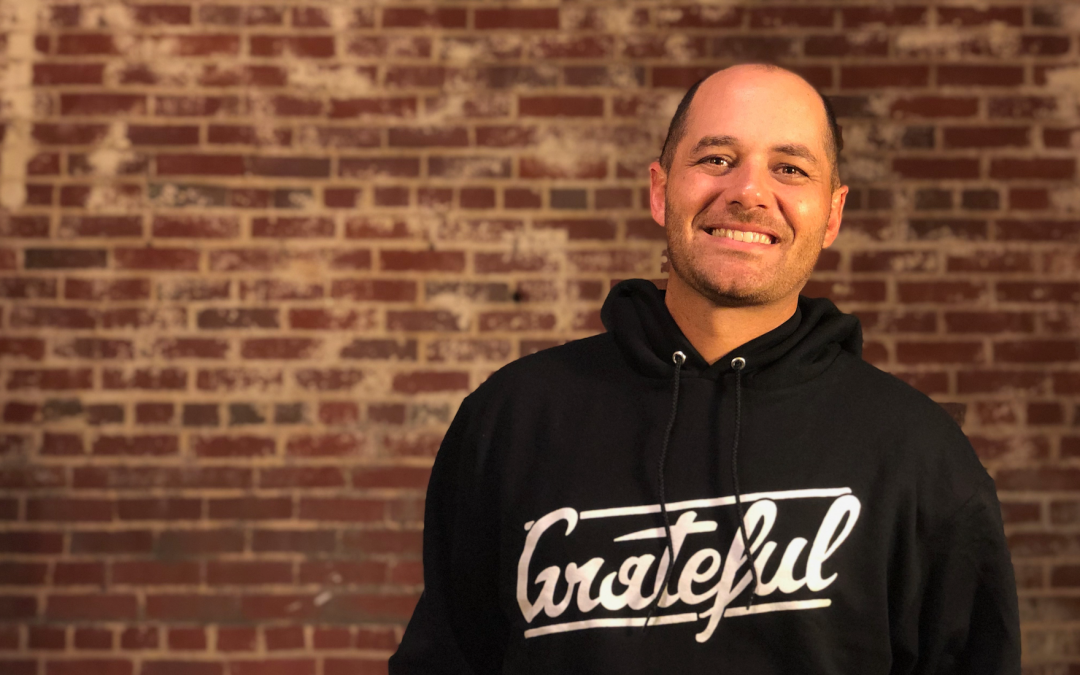
by David Docusen | November 26, 2019 | Uncategorized
I think we need to reconsider using the word reconciliation when talking about finding friendship across the dividing lines of race.
Don’t get me wrong, I’m all for the work that folks are doing that genuinely try to bring racial reconciliation to our culture. However, the more that I’ve explored these topics and found friendship across racial lines, the more I am thinking that we may not have a reference point to which we can return that was healthy, unified, and expressing the oneness that God has always intended for us.
At which point in American history would we return that was equitable and just toward people of color?
Our country was founded by initially acquiring land by manipulation and aggression toward Native Americans. We have a well-documented history of the atrocity of slavery that set the national bias toward black people in our nation. Families that immigrated from Central and South America have been viewed as different or less than the predominantly-white middle and upper class for generations. The list can go on and on regarding a white-dominated culture insisting that people of color assimilate to the dominant culture.
Reconciliation can be defined as the restoration of friendly relationships or the action of making one view or belief compatible with another.
Think of these definitions through lens of a person of color in our country. If we are a country built upon the principles of a predominantly white culture, how do you think it sounds to a person of color when we talk about reconciliation? Exactly what are we returning to that makes sense to return to that would bring healing?
I think we need to consider exploring conversations that bring racial conciliation.
Conciliation can be defined as overcoming distrust, gaining goodwill, or making compatible.
This can be accomplished by folks that have grown up in the dominant culture taking the time to humbly listen, learn, and grow in our understanding of what it’s like to be a person of color in our country. We need to ask better questions instead of giving quick answers to societal problems that – if we’re really honest – we probably don’t understand in the first place.
Here’s four questions that may get the conversation started from a better reference point:
- Why are our people of color imprisoned 4x more than white people in America?
- Why are prison sentences longer for similar crimes for people of color than white people?
- How did the “war on drugs” target predominantly black and high-poverty communities?
- Did you know there are 4x the amount of people of color in our prisons that were ever in slavery?
There are so many questions that we can ask like this that would heighten our awareness and bring understanding between friends. However, if we’re not willing to ask questions, we will never truly be ready to understand our neighbors.
If you’re interested in those four questions above, a good start is to log on to Netflix and search for the documentary called 13th (click to view). This brilliant documentary exposes the way the prison system has been skewed to be full of people of color and how the 13th amendment – which was supposed to abolish slavery – introduced a new system that became a more subtle version of slavery.
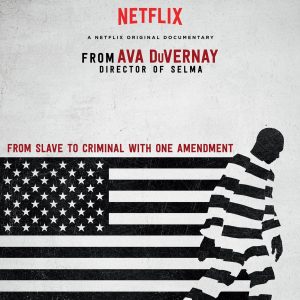
If you remain curious, I pray that you’ll also embrace a courageous spirit to continue exploring. A great way to do that is to explore Michelle Alexander’s incredible book called The New Jim Crow (click to order). I could only read subtitle-to-subtitle before having to stop and repent of simply not knowing. Honestly, I had to repent of not caring, as well. I always just assumed that people who ended up in jail somehow deserved to end up there.
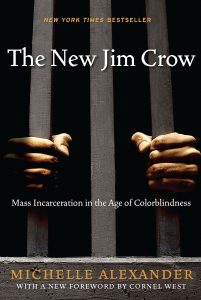
I couldn’t have been more wrong. Additionally, I did not understand how we arrived at a point in our culture where white folks are moving along as if nothing is wrong while people of color have to think about these imbalances regularly.
If we are going to return to something, let’s go all the way back to the story of Jesus. He showed us how to open up our arms, invite everyone to the table, and enjoy a diverse community of friendship and oneness.
To my white friends: I want to humbly listen, learn, and grow. I invite you to do the same. Let’s start by doing some of the work of learning on our own and stop moving along as if nothing is wrong. Let’s care about our neighbors enough to look past our own perspective.
When we learn the true stories of our history, we can engage in conciliatory conversations that bring healing that has never been realized in American culture.
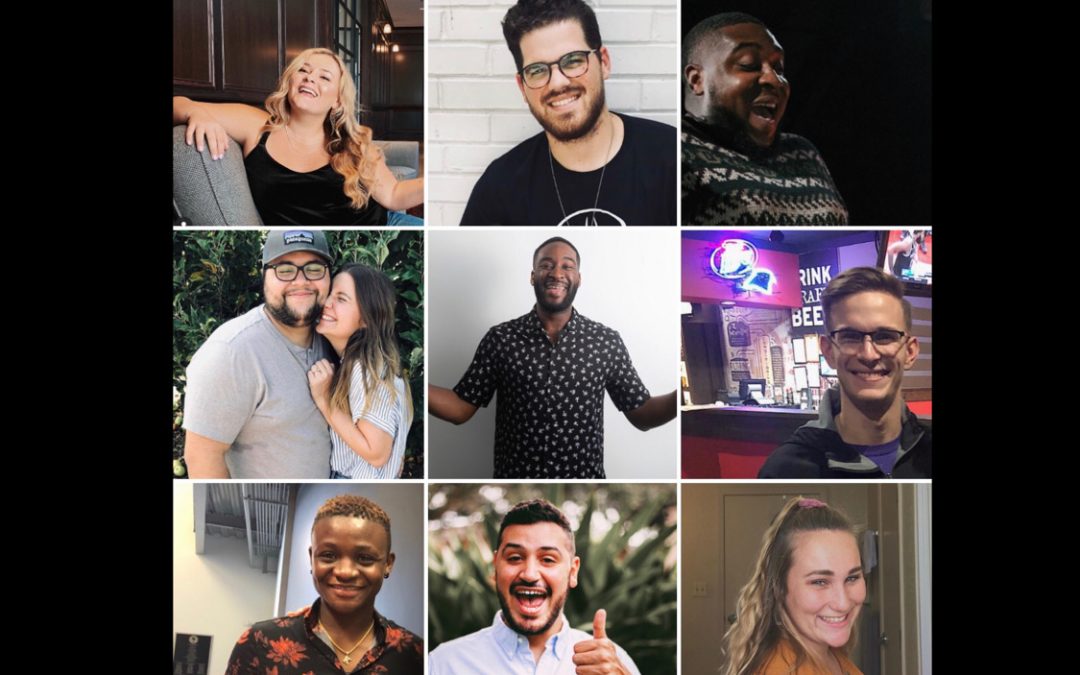
by David Docusen | November 11, 2019 | Uncategorized
I saw the future on Tuesday.
I was teaching eleven future pastors in my Pastoral Theology class at SEU Concord. They were totally engaged as we talked about the challenges of doing ministry in a culture that is rapidly changing. I said to them, “Ministry has to change. Engaging our culture with the gospel has to find new expressions. You are the ones that are going to lead us into that new reality.” I think they actually believed me, and I could see the curiosity and excitement in their eyes.
I saw the future on Wednesday.
I was sitting at the on-campus restaurant at Southeastern University with Kaylee, Elissa, and Kevin. Three students with a passion to see a multi-cultural expression of oneness on the campus of our university and in our culture. I asked them to describe to me their experiences and what they were sensing for the future. The conversation started slowly with reserved answers and unsure statements. However, the more we talked I could see their confidence grow. They simply needed someone to listen to them and remind them that they have a voice and a perspective that is valid and needed. We talked about speaking truth in love and delivering important messages of equity to people in positions of power. The uncertainty and reservations became full-voice statements of what our world could be if we love each other well and see each other as one in the body of Christ.
I saw the future on Thursday.
The chapel at Southeastern University was absolutely bursting with energy. 500 students filled began to spontaneously sing the chorus to a song that had just finished. “Holy Spirit, we need a fresh outpouring.” Over and over again… the students passionately sang this out until the band joined in and the entire community sang with full voice. I looked around the room and saw asian, black, latino, white, and Caribbean students singing the same song. I saw a brief glimpse of the Revelation 7 chorus that describes every nation and every tongue joining together to give glory to God. Tori Hammer, the campus pastor posted a story on Instagram that summed up the moment so well. She said, “This is revival.”
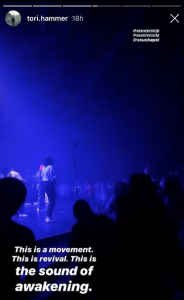
I saw the future in 1997.
I was a freshman at Southeastern University singing a similar song in the same chapel. I had no idea what God would do in and through my life, but I learned how to sing a song with others that pointed me to God. I distinctly remember moments in Bush Chapel where I would envision a future in which I was doing ministry full-time with my future wife and children. I couldn’t see what the future would hold, but I remember the hope that filled my heart every time I closed my eyes and envisioned what was ahead. Twenty-two years sure goes by fast. God has been so faithful and he’s done so much more than I could have ever asked or imagined in and through my life. I genuinely believe that there’s plenty more to come in my ministry and I love closing my eyes and imagining what that future may look like. I know Dara, Max, Mary, Jack, and Ben are with me in that future and I am overjoyed to have them by my side.
One of my students, Harrison, shot me a text message after class last Tuesday. He said, “I appreciate your voice and influence in my life. God is using you as a huge blessing to the next generation.” This text hit me differently than he intended… not in a bad way. It was good. I was encouraged, but for almost two decades in full-time ministry, I’ve been looked at as the young buck in most ministry settings. It hit me that the students that I’m now teaching have now and next as we envision a future of sharing the beauty of the gospel. That text meant a lot to me. First, it hit me that I need to make sure that I’m investing everything I possibly can into the generations that will follow me in ministry. God has been so faithful to me and my family. Second, the gratitude in that message gave me so much hope for our future. There is a remnant of young men and women that are being raised up to lead all of us into the new realities that will be present in our future.
Harrison, Elissa, Kaylee, Kevin, Elaina, Matt, Reuben, Michael, Hannah, Quincy, Easton, Caitlyn, Wesley, Uchenna, Joey, Mikayla, and Eric… you have now and next as we envision the future and all that God will do in and through us. Stay close to Jesus and always remember that when you remain close to Him he promises to be with you. When you stray away from Him, it’s like a fruit-bearing tree that’s been uprooted. Always remain rooted in Him and he will faithfully produce enough fruit for you, your future family, and those that fill your world. God is faithful and he has called and empowered you to be the ones that re-imagine new methods in ministry that will continue to advance the peaceable and beautiful Kingdom of God.
Now and next. I can see the future in your eyes.
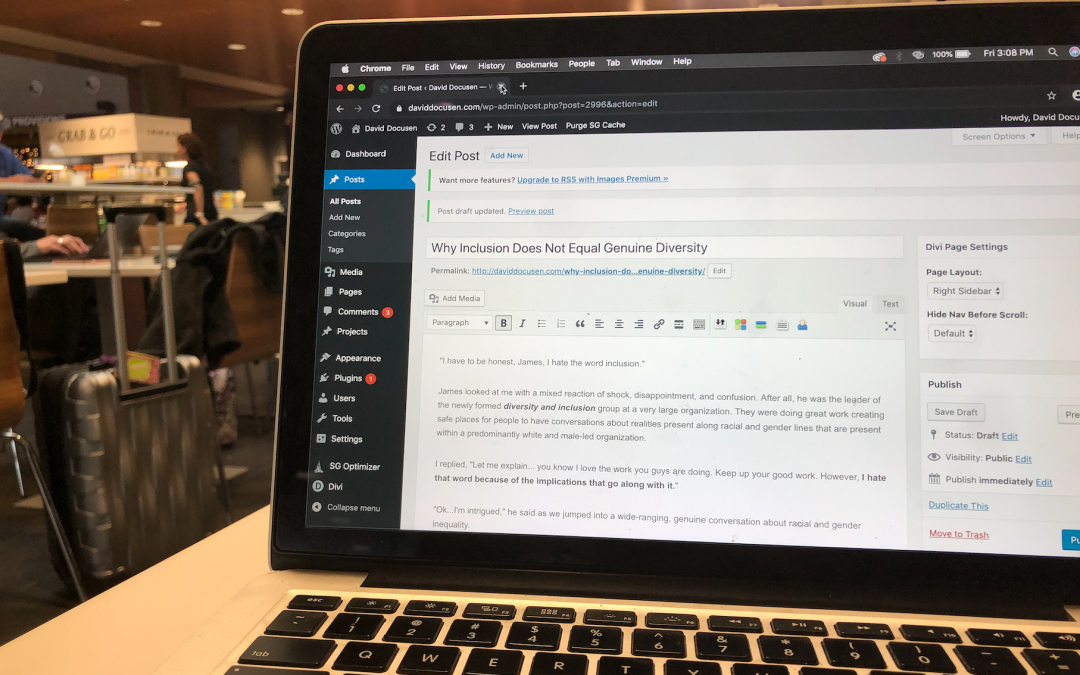
by David Docusen | November 8, 2019 | Uncategorized
“I have to be honest, James, I hate the word inclusion.”
James looked at me with a mixed reaction of shock, disappointment, and confusion. After all, he was the leader of the newly formed diversity and inclusion group at a very large organization. They were doing great work creating safe places for people to have conversations about realities present along racial and gender lines that are present within a predominantly white and male-led organization.
I replied, “Let me explain… you know I love the work you guys are doing. Keep up your good work. However, I hate that word because of the implications that go along with it.”
“Ok…I’m intrigued,” he said as we jumped into a wide-ranging, genuine conversation about racial and gender inequality.
I hate the word inclusion because it implies a dominant group of people (this can include one dominant race, economic status, gender, etc.) is allowing a minority group to participate in the dominant expression of the organization. That doesn’t sound like much fun, does it?
It’s easy if you are a member of an all-male and all-white executive team to just tune me out right now. Remember, I’m a white guy that’s been in a lot of these rooms. We’ve got to do better because we’ve missed out on so much brilliance and beauty by filling rooms with people that look and act like us. I can’t stop thinking about the fact that Jesus said that loving God and neighbors is the most important commandment that we could follow (Mark 12:28-34). In order to truly love each other well, we need to take the time to understand and see each other.
A dominant group has a certain expression of the way they see the world, experience their faith, and make decisions. When a person of color or a woman is invited to be included in an organization that is led by a predominantly white and male leadership team, many times that simply means that they have been invited to help the dominant group continue to express their monotone worldview without genuine input from the person being included in the final decision-making process.
If a person on the margins is not given the genuine opportunity to make decisions or give input that would be deeply considered, inclusion comes off as disingenuous at best, and grossly oppressive at worst.
In order to truly experience the beauty of diversity, there has to be decision makers in the room that come from various backgrounds. How can an all-white board of directors make decisions that truly make people of color feel like their organization is allowing them to operate from their true center if no one that looks like them is even in the room? How can an all-male executive team make a well-informed decision without any women present that is genuinely for the women in that company?
Let’s dig in a bit more to church culture. Simply diversifying the racial representation of the worship team does not actually mean that you’ve created an atmosphere that is creating space for people of color to truly worship from their true center. If every song that is played on a Sunday morning is from the same general genre from the dominant culture the expression of worship from folks that have lived on the margins may never genuinely connect on a heart level.
We’ve got to learn how to sing together, even if the songs aren’t familiar or preferred.
We have to become more committed to filling executive teams and board rooms with women and people of color that are brilliant, qualified, and bring much-needed perspective to a white and male-dominated culture. If you have a position of influence within an organization that is dominated by a single ethnic or gender group, how can you use that influence to highlight the qualification and brilliance of people that have been pushed to the margins?
Inattentional blindness is the psychological phenomenon that causes you to miss things that are right in front of your eyes. This means that you genuinely may have never even realized that your organization was dominated by one race or gender. This phenomenon means that you get so used to your surroundings that you miss things in that context that are obvious to others.
Where do we start? Great question.
There are brilliant women and people of color everywhere. That being said, start by analyzing the context of your life and friendships. Who are your friends and the people that join you during your lunch break? Who are the friends that surround you in your home at the dinner table? This will take time, but starting with auditing your own life and friendships begins to open your eyes to the reality that there’s a much broader expression of beauty and brilliance than what we have experienced in our majority white and male-led culture.
Inclusion does not equal diversity. I don’t want to invite people of color and women to express life from the perspective of a white man. I want to experience the beauty of God like I see in the bible. Revelation 7:9 (MSG) says, “I saw a huge crowd, too huge to count. Everyone was there—all nations and tribes, all races and languages.” An entire community was singing and worshiping God with one voice. We all don’t have to sing the same part to sing the same song. Harmony – the combination of different parts of a song – is what makes for a beautiful song.
Is your church, nonprofit, or business singing a beautiful song or have you invited a group of talented singers to sing the same part you learned? I can hear a song that will be sung in the future and the melodies and harmonies are breathtaking and beautiful. It will take some practice, but let’s choose to sing together.
James and I finished our conversation and he smiled as he said, “I see you, David. I didn’t know where you were going with that one, but I see you. Let’s sing together.“
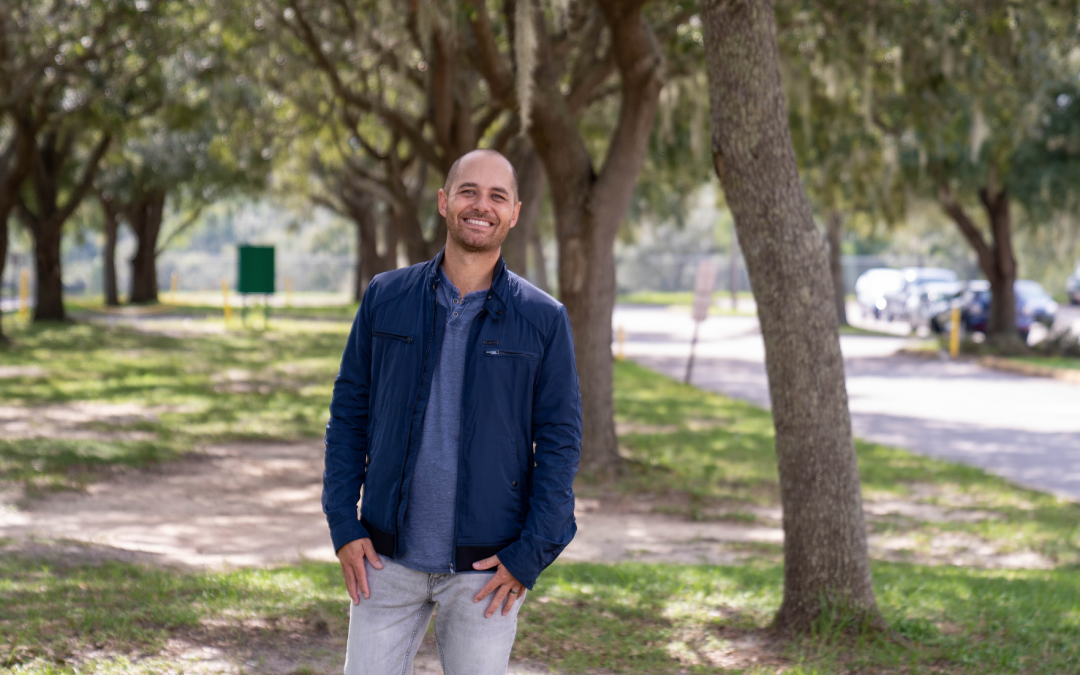
by David Docusen | November 5, 2019 | Uncategorized
I have dreamed of writing a book for almost twenty years. Actually, if I am being really honest, I’ve dreamed of writing a lot of books. What dreams do you have that you haven’t released to the world? Here’s to hoping that this post will encourage you to courageously respond to closed doors (don’t try to pry them open) and then courageously walk through open doors (don’t shrink back in fear).
I’ve got no less than ten different book ideas safely tucked away in a password-protected journal program on my computer. Whenever I get a new idea, I pull out my computer or phone, open Evernote, and capture the moment. I’ve been capturing moments like this for over ten years. These ideas have remained safely behind an additional layer that I have hid behind for a while: insecurity. Dara (my wife) knows most of my ideas, but that is the farthest most of them have traveled.
Everything changed a few months ago when I signed a contract with the Fedd Agency. Honestly, typing out or saying the words my agent still feels unnatural. Doesn’t really roll off the tongue.
I was massively encouraged by my second interaction with my agent, Esther in April 2019. She was incredibly excited about the ideas that I had formed around the topic of neighborliness. However, this was after an eye-opening first call with Esther in September of 2016.
“I have been excited to chat with you,” Esther (founder and owner of the Fedd Agency) said. “Tell me your ideas. However, make it quick. If you can’t tell me your idea in a few sentences, you don’t have an idea.” Five minutes later I was still rambling through my catalogue of Evernote ideas. Esther graciously stopped me and said, “I am excited to work with you, but you don’t have an idea yet. Finish up your doctoral program, clear your head, and call me back in a few years.”
She had a point. I was full of ideas that had no practical expression that would genuinely benefit others if they read what I was writing. If I didn’t fully understand my ideas at that point, there was no way I could ever pass them on in a way that would encourage others. I doubled down on my education and finished my doctoral program in April 2019. A few weeks later, I took a deep breath and reached back out to Esther.
“Let’s do it again,” she said with a genuine excitement. “Remember, however, you have to make it quick. You don’t have an idea if you can’t say it quickly.”
I remember feeling a brief moment of nervousness before I replied, but that was quickly followed by a feeling of confidence and readiness. The insecurity that I had become so familiar with over the years was still present, but I believed in the message God had formed and shaped in my heart so much that insecurity would no longer keep me from sharing.
“I started my doctoral program three years ago with the idea that I wanted to understand the reasons behind the cyclical patterns of generational poverty. However, the more I studied the unequal systems that divide our communities, the more I was drawn to the call of Jesus to love God and neighbors. If we express a spirit of neighborliness, we would never have inequity in our society.” I stopped, listened to what seemed to be forever-silence (most likely a three-second pause) and Esther said, “What did you just say? Neighborliness? That’s it!! That’s the message that we all need to hear. That’s the message I need to hear.”
Later that day, Esther sent me a contract and we began the process of developing a book proposal. All of a sudden, I was going from safely storing the most intimate and vulnerable ideas that I was developing to sharing them with an editorial team (shout out to my main editor at Fedd, Tori Thacher!) that wanted to pull all of the best ideas out of me and get them into this proposal.
The editorial team coached me through writing the first proposal and I submitted it to them after six weeks of writing, re-writing, throwing paper against the wall (literally and figuratively). Tori’s first response was encouraging and challenging. “This is really good,” she said. “But you have more in you.”
Anyone else out there here the “but you have more in you” louder than the “it’s really good?” I know I’m not alone on that one. I had to move past my insecurities because I want the message to be as strong as possible. Additionally, I’m convinced Tori is a savant when it comes to writing, so I decided to take the encouragement with the challenge and keep moving forward.
Over the next two weeks, Tori and I worked hand-in-hand on a completely new proposal. It was deeper, more nuanced, and much clearer than the first one I wrote. I’m grateful for Tori’s courage to challenge me, because she pulled ideas out of me that I didn’t even know were present behind the layers of notes that I had created on my own.
I will never forget getting the final email from Esther and Tori that said that they had completed the proposal with the attached design that they would be sending to publishers. As a note, this isn’t the final artwork or even the final title (the publishers will be involved with final creative decisions).
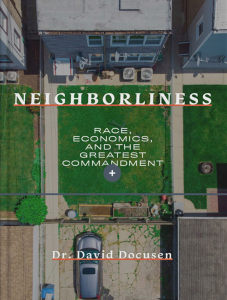
Seeing this graphic was a dream twenty years in the making. I thought I would cry (sometimes I cry), but I didn’t. I just sat there completely speechless. I love to talk, so speechless seems to be a reaction reserved for moments like the birth of my four kids and the rare occasion that the Detroit Tigers – my favorite baseball team since I was a child – actually win a game.
The team from the Fedd Agency has been incredible along the way. They genuinely believe in the message that God continues to form in my heart. I thank God on a regular basis that they are advocating for this book (and books to come). However, I had no clue what the process would look like once they submitted the book to publishers.
I checked my email no less than a hundred times the next few days. I guess I was just figuring that major publishers were just waiting to get a book exploring the potentially volatile topic of race, economics, and the greatest commandment. I wrote Jill (director of author relations) and said, “By the way… what’s this process look like? Days, weeks, months?” She wrote back and kindly told me that the process could take several months. She added, “Make sure you’re not writing anymore on the framework of this book. It could all change if they publishers feel like it needs to go in another direction.”
That email was almost two months ago. I have learned so much about myself during this time of waiting. I have reinforced a long-known reality that I’m not really good at waiting. God is teaching me how to patiently wait for him to open doors that no man can close and close doors that no man can open (Revelation 3:8). I am learning to appreciate the present moment and not wish away a season of calm to get to the season where I will see this dream realized. God is present in the waiting.
What are you waiting on today? What dream is in your heart that has not been fulfilled? Maybe we can join each other in recognizing that God is with us in the waiting.
One of the names of God in the bible is Immanuel. It means “God with us.” Let that one sink in. One of his names in Scripture means that he is with us in every season. God ascends to the mountaintop with us to see the beautiful view of what we have accomplished and what is still to come. God descends into the valley with with us when we can’t see past the forest of doubt and fear. He is with us on every part of the journey, and he’s traveling with us today.
Let’s be real… I still hope this season of waiting ends soon. However, I’m growing more and more comfortable in the waiting because I know that God is with me everywhere I go. I don’t like seasons of waiting, but I’m grateful I’m not alone. God is with me and I have a hunch you may be on a similar journey, as well.
Immanuel, God is with us.
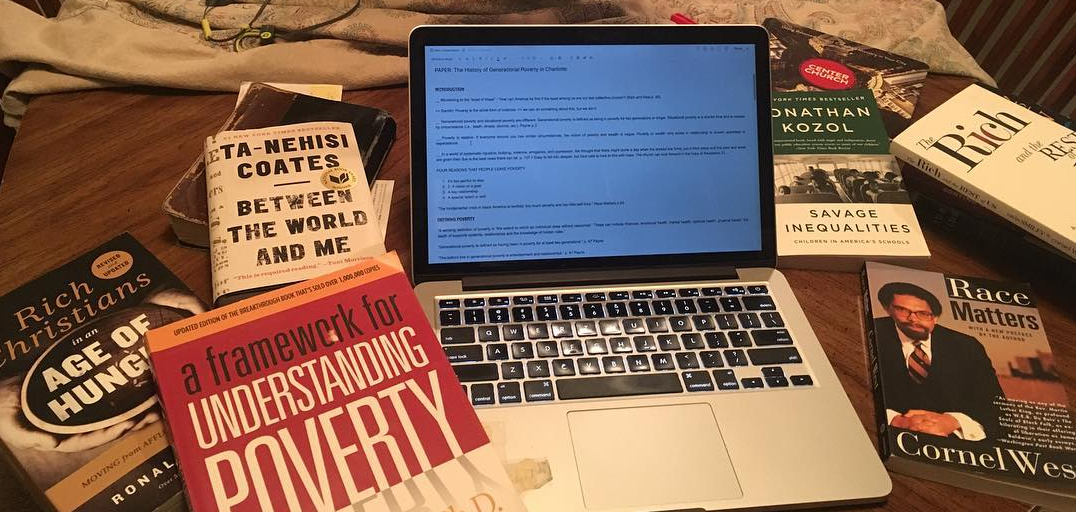
by David Docusen | June 25, 2019 | Uncategorized
Developing this doctoral dissertation was a life-changing journey. Jesus shaped my heart in ways that I could have never imagined, and I love him more today than ever before because of being exposed to his story.
Here’s the link to download the dissertation, with the abstract (summary) of the project.
https://firescholars.seu.edu/dmin/5
Neighborliness: A Call to Racial and Socioeconomic Equity in Charlotte, North Carolina
In Mark 12:28-34, Jesus is challenged by an expert in religious law to identify the most important commandment. He replies that loving God and neighbors is the most important of the over six hundred commandments. This research project investigates how healing can come to communities that have been racially and socioeconomically divided when a spirit of biblical neighborliness is present. The ubiquity of this call to neighborliness throughout Scripture highlights the importance of this topic, but special emphasis is given to Mark 12:28-34 and Isaiah 58:1-14 in order to focus the effort and scope of this dissertation.
Chapter One surveys the biblical call to neighborliness in Mark 12:28-34 and Isaiah 58:1-14. Chapter Two explains the influences that cause individuals born into poverty to likely remain in poverty their entire life. The framework of stabilizing education, employment, healthcare, and housing is introduced as a strategy to break the cyclical pattern of generational poverty. Chapter Three moves to describing a seminar, titled “Neighborliness: A Seminar on Race, Economics, and Friendship,” hosted at Center City Church in Charlotte, North Carolina. Chapter Four then offers a reflective summary and analysis of the feedback from participants of the seminar. Lastly, Chapter Five reveals the desire of the researcher to continue to progress toward the study and practical expression of biblical neighborliness in cities across the world.










